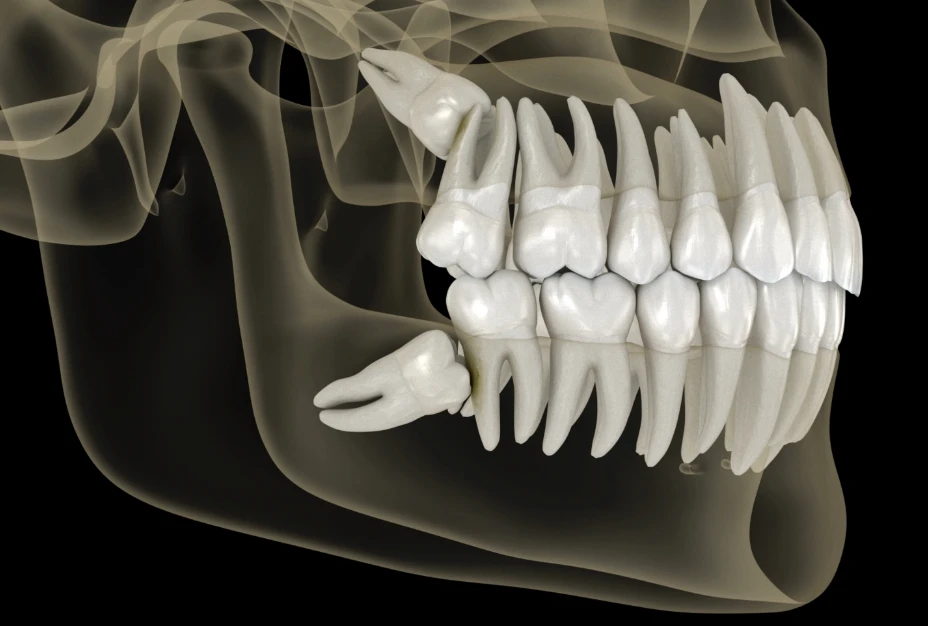When it comes to oral health, many people tend to focus on brushing, flossing, and regular dental check-ups. However, one aspect that is often overlooked is the impact of wisdom teeth on overall health. Wisdom teeth, also known as third molars, are the last set of molars to emerge in the back of the mouth. While some people may never experience any issues with their wisdom teeth, for others, these teeth can cause a variety of problems that go beyond just oral health. In this article, we will explore the mind-body connection of wisdom teeth and how they can impact your overall well-being.
The Role of Wisdom Teeth
Wisdom teeth typically start to emerge in the late teens or early twenties. In centuries past, these additional teeth were necessary for our ancestors who had diets that were tougher on the teeth. However, evolution has rendered these teeth somewhat obsolete for most modern humans.
Key points to consider about wisdom teeth:
- Wisdom teeth are the last set of molars to emerge, usually between the ages of 17-25.
- Some people may never have issues with their wisdom teeth, while others may experience pain, infection, or other complications.
- Due to changes in diet and jaw size over time, many people do not have enough room in their mouths for these additional teeth.
Impact on Oral Health
One of the most common issues associated with wisdom teeth is impaction. This occurs when the teeth do not have enough room to emerge properly and become trapped within the jawbone or gums. Impacted wisdom teeth can lead to a host of problems, including infection, gum disease, and damage to surrounding teeth.
Complications from impacted wisdom teeth:
- Pain and swelling in the back of the mouth.
- Infection, which can spread to other parts of the body if left untreated.
- Damage to adjacent teeth due to crowding or pressure.
- Cysts or tumors may develop around impacted teeth.
Systemic Health Effects
While the impact of wisdom teeth is most obvious in oral health, the effects can also extend to other areas of the body. Research has shown that there is a clear connection between oral health and systemic health, with issues in the mouth potentially leading to problems in other parts of the body.
Systemic health effects of wisdom teeth issues:
- Increased risk of heart disease and stroke.
- Complications with diabetes management.
- Respiratory problems, such as pneumonia, due to oral infections.
- Higher risk of pregnancy complications, such as preterm birth.
Emotional Well-being
Dealing with the pain and discomfort of impacted wisdom teeth can take a toll on a person's emotional well-being. Chronic pain, anxiety about dental procedures, and the physical changes that can occur as a result of wisdom teeth issues can all contribute to feelings of stress and low mood.
How wisdom teeth can impact emotional health:
- Chronic pain can lead to irritability, fatigue, and difficulty concentrating.
- Anxiety about dental visits or procedures can result in avoidance of necessary treatment.
- Changes in facial structure due to impacted teeth can impact self-esteem and body image.
Preventative Measures
While not everyone will experience issues with their wisdom teeth, there are steps that can be taken to reduce the likelihood of complications. Regular dental check-ups, maintaining good oral hygiene, and monitoring the development of wisdom teeth can all help in preventing problems before they arise.
Preventative measures for wisdom teeth:
- Regular dental visits for monitoring and early intervention.
- Good oral hygiene practices, including brushing and flossing regularly.
- X-rays to track the development of wisdom teeth and detect any potential issues early.
- Consultation with an oral surgeon for a comprehensive evaluation of wisdom teeth.
Conclusion
While wisdom teeth may seem like a minor concern in the grand scheme of health, their impact can be far-reaching. From oral health complications to systemic effects and emotional well-being, it is clear that these additional molars can play a significant role in overall health. By understanding the potential issues associated with wisdom teeth and taking proactive steps to address them, individuals can not only protect their oral health but also safeguard their overall well-being.
